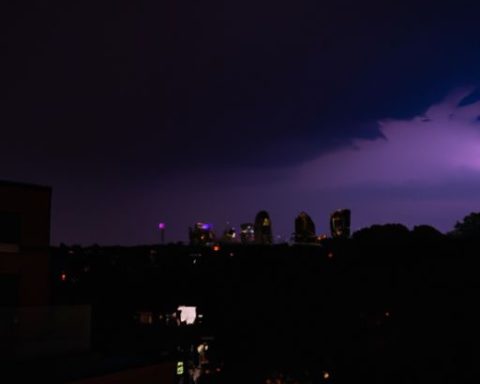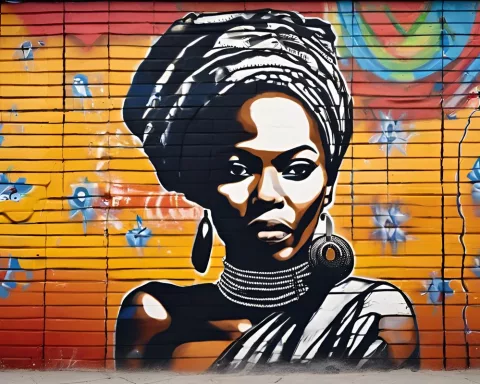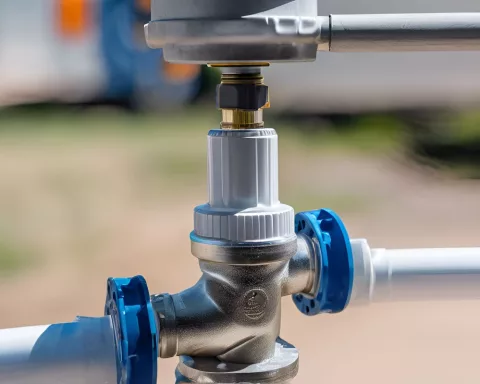The demand for action is urgent, as South Africa is the most significant carbon emitter on the African continent. South Africans came together to demand climate justice as part of the Global Day of Action, with around a hundred demonstrators rallying at Muizenberg beach to demand a transition from fossil fuels to renewable energy sources to combat the ecological, social, and economic consequences of fossil fuel exploitation. The demonstrations across South Africa were part of a global initiative aligned with the COP28 summit in Dubai, with a focus on assessing progress in the fight against climate change.
South Africans rallied for climate justice as part of the Global Day of Action on 9 December. Approximately a hundred demonstrators converged on Muizenberg beach, raising signs to demand a swift transition from fossil fuels to renewable energy sources. The protests not only emphasised the ecological impact of fossil fuel exploitation but also highlighted its social and economic consequences. South Africa is the most significant carbon emitter on the African continent, and its united voice on climate change joined a worldwide chorus of millions.
In a remarkable demonstration of collective resilience and dedication to nature, South Africans pulled together to demand climate justice as part of the Global Day of Action on 9 December. With meetings in diverse regions such as Cape Town, Durban, Knysna, and Saldanha Bay, these mobilisations were part of a larger global initiative aligning with the COP28 summit in Dubai, an annual event focused on assessing progress in the climate change battle.
The Protests and Their Message
Among the demonstrators, approximately a hundred individuals converged on Muizenberg beach, raising signs with powerful statements like ‘No ocean, no life’ and ‘We say no to oil & gas exploration’. Notably, the day was marked by an unusual event where a man, seemingly part of the protest, discharged a flare gun from the beach and was later apprehended. Despite this unexpected event, the main theme of the protest remained unchanged- the immediate need for a swift transition from fossil fuels to renewable energy sources.
Liz McDaid, an envoy from The Green Connection, a nature-oriented organisation, was firm about South Africa’s pressing need for such a transition. Her thoughts mirrored a rising sentiment among international environmentalists- to reclaim power for the people from corporations benefiting from the degradation of our planet. “We must restore the power to the people. We must wrest it from the corporations,” McDaid declared.
Socio-Economic Impact of Fossil Fuels
The worries expressed during the demonstration were not limited to ecological matters. They also emphasised the social and economic fallout of ongoing fossil fuel exploitation. Wendy Pekeur of the Ubuntu Rural Women and Youth Movement highlighted the potential threat to coastal town fishers’ livelihoods due to seismic surveys and oil and gas drilling practices. Drawing a comparison to the controversial history of mining in the Northern Cape, Pekeur expressed her concerns for the wellbeing of local communities. “What happened to the mining companies? They amassed wealth while the surrounding communities remained impoverished,” she lamented.
As the most significant carbon emitter on the African continent, South Africa carries a burdensome responsibility in the worldwide effort against climate change. The demand for action is urgent, as underlined by Elaine Mills, a volunteer for Greenpeace. Championing a move towards clean energy, Mills referenced the International Energy Agency’s advice that no new oil and gas extraction should take place if we aim to achieve globally net CO2 emissions by 2050.
Climate Change Impact and Future Generations
Mills underscored the severe reality of the daily impacts of climate change and debunked the misconception that oil and gas projects bring prosperity or job opportunities. “We can see the impact of climate change every day,” she pointed out, “Most of what will be extracted will be exported.”
Endorsing Mills’s sentiments, Gabriel Klaasen, a representative of the African Climate Alliance, provided a sobering perspective. He proposed that further oil and gas exploration is indicative of a collective failure to safeguard the environment and the next generations. “We’ve given up on ourselves,” opined Klaasen, “We’ve given up on future generations who will have to deal with the destruction.”
Joining Global Voices for a Sustainable Future
The South African contribution to the Global Day of Action for climate justice is a compelling proof of the nation’s united determination to tackle climate change. Their voices join a worldwide chorus of millions, advocating for a sustainable and fair future that appreciates the inherent bond between humanity and the earth.
1. What was the demand of the South Africans during the Global Day of Action for climate justice?
South Africans demanded a transition from fossil fuels to renewable energy sources to combat the ecological, social, and economic consequences of fossil fuel exploitation.
2. What was the main theme of the protest despite an unexpected event?
The main theme of the protest remained unchanged, which was the immediate need for a swift transition from fossil fuels to renewable energy sources.
3. What was Liz McDaid’s opinion on the pressing need for a transition to renewable energy sources?
Liz McDaid, an envoy from The Green Connection, believed that South Africa urgently needs a transition from fossil fuels to renewable energy sources and to reclaim power for the people from corporations benefiting from the degradation of our planet.
4. What was Wendy Pekeur’s concern about fossil fuel exploitation?
Wendy Pekeur of the Ubuntu Rural Women and Youth Movement was concerned about the potential threat to coastal town fishers’ livelihoods due to seismic surveys and oil and gas drilling practices.
5. What was the International Energy Agency’s advice on oil and gas extraction?
The International Energy Agency advised that no new oil and gas extraction should take place if we aim to achieve globally net CO2 emissions by 2050.
6. What was Gabriel Klaasen’s opinion on further oil and gas exploration?
Gabriel Klaasen, a representative of the African Climate Alliance, believed that further oil and gas exploration is indicative of a collective failure to safeguard the environment and future generations.












